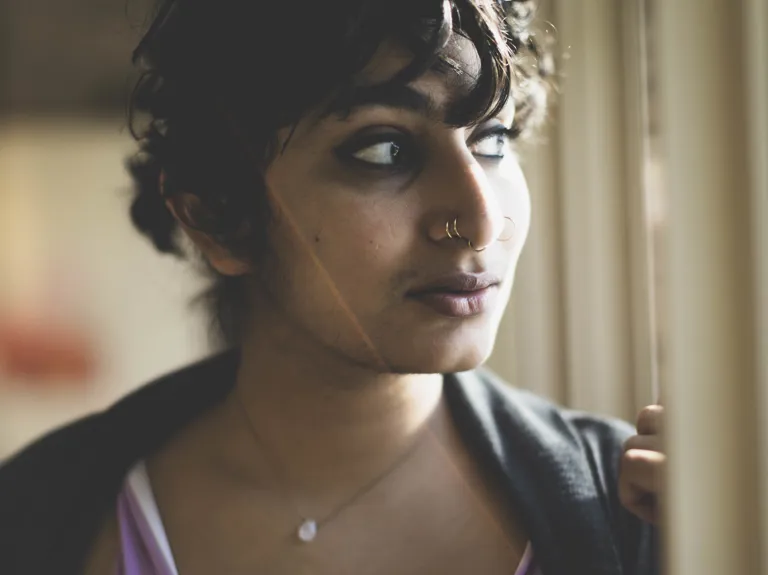Incubating future movements in travel and culture
Words Frankie WechslerImages Ian ClontzVideo David Levesque
Hieu Minh Nguyen may not be your typical Minnesotan. But his experience growing up queer in the Midwest, a child of Vietnamese immigrants raised by a single mother in the Mcdonough Housing Projects in Saint Paul, was something he tapped into heavily in his first poetry collection, “This Way to the Sugar” (Write Bloody Publishing, 2014), which was a finalist for both the Lambda Literary Award and the Minnesota Book Award. We caught up with Nguyen at Further Troutbeck: The Poet Society to talk about his latest collection, “Not Here” (Coffee House Press, 2018), the role community plays in his life, and what people get wrong about the Midwest.
Your Midwestern upbringing figures heavily in your first poetry collection. Can you talk a bit about where you grew up?
Hieu Minh Nguyen: Well, I grew up in the twin cities. It’s Saint Paul and Minneapolis and, I’ve lived there my whole life. I think a lot of people think the Midwest is mainly white and like cornfields and farmland. But I had access to all different types of landscapes and could go from a very urban environment to a very rural environment that was just like woods, you know? We’re considered flyover states, so we’re often ignored in multiple ways. We’re ignored because we’re not a big metropolis or vacation destination. But, you know, the communities I grew up in were full of people of color and immigrants, so there’s that kind of ignoring as well. There are a lot of people who don’t think that there are immigrants or people of color in the Midwest. And so a lot of my work talks about a Midwest that I don't think many people know about.
Can you tell us a bit about “Not Here,” your latest collection?
Nguyen: So the book came from two questions I had for myself: What does it mean to leave and what does it mean to stay? And it’s not always about a physical location. One of my closest friends growing up killed himself. And that was his choice of not staying. Staying for me, it wasn’t always about like staying in the Twin Cities, you know, but also like staying on this earth. Growing up I also had suicidal ideations, and so I think it was a lineage of choosing to stay or choosing to leave. That lineage also applies to my family who immigrated here. Like they chose to leave Vietnam, or some of them chose to stay… And how does this affect relationships? And how does it affect your relationship to the earth?
When did poetry come into the equation for you?
Nguyen: I was writing poems in high school. I was a really shitty student in high school. I was never there. And when I was, I was never really paying attention. The only thing that I really cared about was art. I think the problem with figuring out what you want to do with the rest of your life that early on is that you don’t care about anything else. But I was happy and content with the idea of working any job I needed to work as long as I was able to make art and as long as I was able to find time to write it. That felt fulfilling to me.
“We were hustling together. We were all hungry together… We were all trying to make sense of this thing that we were obsessed with”
Hieu Minh Nguyen
Who or what are your biggest influences?
Nguyen: Often when I get this question, I want to throw out historic names that have influenced me and my writing. But I think the people that have impacted my work the most have always been people in my communities, in the communities I grew up with and my peers and my mentors and my teachers. They have been my biggest influences.
You seem to be part of this very strong artistic community made up of all these young published poets. How did this develop and what does it mean to you?
Nguyen: I mean, we were all friends before we were published. We were all friends because we had a shared… I wouldn’t even say interests, but we were curious about something together. And so we kind of found each other and explored this thing together. We were hustling together. We were all hungry together. We were all invested into each other’s journeys and we were all trying to make sense of this thing that we were obsessed with. Looking at it now, it’s like, ‘Your community is folks who are all published.’ But we were all young together, right? We were all exploring this thing together and so that’s what made us a community.
Further Troutbeck

With “Brown Girls” and “If They Come for Us,” the award-winning poet and screenwriter brings to life stories that were largely untold in popular culture—until now.
Further Troutbeck
Seven of today’s most exciting young poets gather at a historic literary salon in New York’s Hudson Valley that once nurtured Langston Hughes and Henry David Thoreau, recently revived as a contemporary guesthouse.